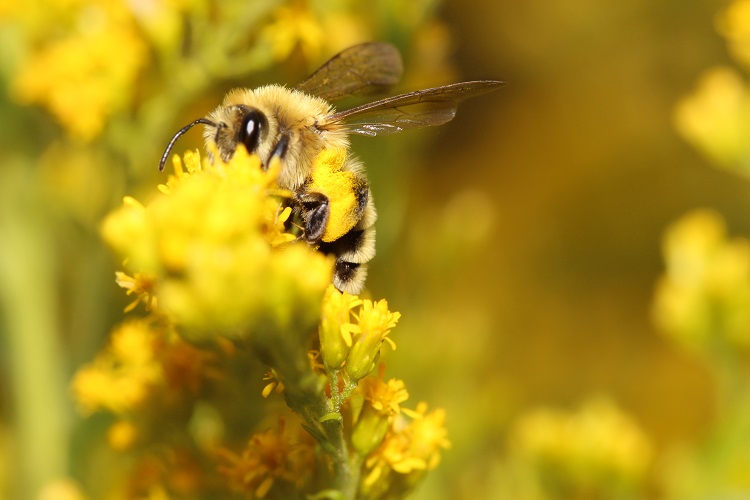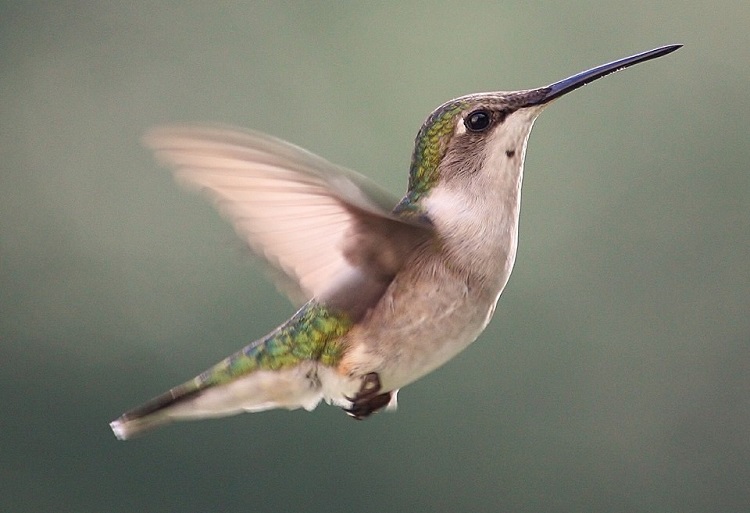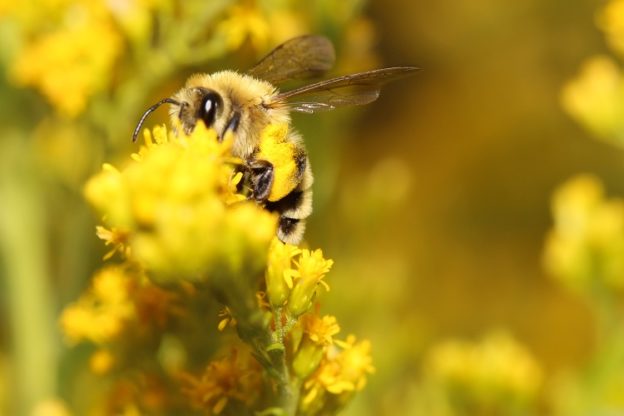Every spring our world blossoms with life: melodious bird song accompanies the bursts of growth in our plants, flowers, and trees. As our backyards and neighborhoods fill with bright colors and vivid aromas, a special group of animals work behind-the-scenes to ensure the survival of our flora: pollinators.

What are Pollinators?
Pollinators are animals that help plants reproduce by spreading pollen, a powdery material that fertilizes plants. By doing so, pollinators conserve and propagate the plants we have in our backyard and the plants we depend on for food.
According to the US Department of Agriculture, over 75% of the world’s flowering plants and about 35% of all food we eat require pollinators to reproduce! The busy-bodies behind these plants’ survival include birds, bees, bats, and even beetles.
While pollinators have been supporting our lives for years and ensuring our local ecosystems thrive, they need our help now more than ever. Many species of pollinators are experiencing dramatic declines to their populations. For instance, three species of bumblebees in the eastern US have experienced a 90% decline over the last 30 years.
Climate change only heightens and multiplies other environmental threats such as pesticide use, habitat degradation, and the spread of non-native, invasive plants – here’s how:
Warming Temperatures
Climate change gradually increases the overall temperature both around the world and in Massachusetts. To try and accommodate for shifting temperatures, many species have to scramble towards new habitats that meet their environmental needs.
Unfortunately, some pollinators (like bees) are not as good at dealing with a warming world through such adaptations. When animals are stuck in unsuitable environments, many of their critical behaviors are negatively altered. Mating and reproduction are a few pollinator behaviors impacted by warming temperatures and inability to adapt.
Additionally, parasites, diseases, or predators that require generally warmer environments to survive are now moving upwards to Massachusetts as the state’s overall temperatures increases. Studies suggest that gut parasite Nosema ceranae has shown to infect honey bees at higher rates during warmer temperatures, for example.
Earlier Springs
Climate change disrupts weather patterns across the world. In Massachusetts, that means shorter and milder winters and earlier springs. As climate change affects our seasons, flowers and plants are now blooming earlier.
These plants, and their pollen, are a food source for pollinators and critical to their survival. Earlier springs means the timing of when plants produce pollen and when pollinators are ready to consume pollen might not align. Pollinators can therefore have less access to food or might completely miss out on their food source because of shifting seasons.
How we can help
Now, it’s our turn to protect our pollinators the same way they’ve protected our ecosystems and plants! We can come together and fight climate change by reducing and eliminating greenhouse gas emissions so our pollinators survive, thrive, and continue their hard work.

Sign up for our newsletter.
Our world needs nature heroes, and we can fight climate change together. Sign up for our newsletter, Climate Connection, to learn more about climate information, solutions, and community action.
Plant a pollinator garden.
Planting a pollinator garden not only beautifies your yard and provides food for existing pollinators, it also fights climate change. Plants are carbon sinks: meaning they can soak up carbon dioxide, a common greenhouse gas, like a sponge. A garden, therefore, can be one of nature’s climate-fighting tools. Learn how to plant a native pollinator garden to fight climate change.


